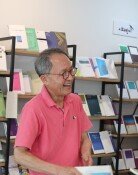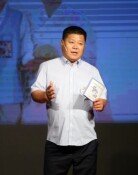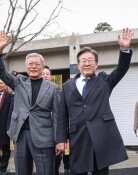[Op-Ed] NY Korean-American Assns Election
[Op-Ed] NY Korean-American Assns Election
Posted March. 31, 2009 10:48,
The New York Times said candidates running for the presidency of the Korean-American Association of Greater New York have spent up to 200,000 U.S. dollars each on their campaigns. A heated battle is being fought for the ceremonial post among three candidates who have hired campaign staff, opened campaign offices, conducted polling, recorded campaign songs, and distributed car posters and T-shirts. The election must have made quite a stir to attract the attention of the leading American newspaper.
Immigrants tend to form their own communities abroad to help each other on foreign soil. Immigrant associations play a huge role in fostering friendships between immigrants and helping them settle down. The New York Times, however, said Korean immigrants have too many organizations, citing that when more than two Koreans do something, they form an association. More than 1,000 ethnic Korean organizations are in New York and New Jersey, many of them churches. To make matters worse, immigrants from same hometowns or schools stick together and slander others from different backgrounds. Bribery often mars election of officers in the groups. Those with a pure conscience bypass the race, bitter that outdated election habits from the age of a pre-democratized Korea are being replicated thousands of miles from their homeland. Though the New York Times made 200,000 dollars sound like a large sum of money, those with experience in such elections say the figure is not even close to enough to ensure victory.
The National Assembly in Seoul has passed a bill granting the 2.4 million Korean nationals living abroad the right to vote from the 2012 general elections. When rumors spread that certain political parties could allot three proportional seats to Korean Americans and two to Korean Japanese, the race among Korean associations grew more heated. Last year, the Korean government spent 17 billion won (12 million dollars) to support Korean immigrant associations through the Overseas Koreans Foundation, including 2.4 billion won (1.7 million dollars) on promoting exchanges between associations, 6.6 billion won (4.7 million dollars) on long-cherished projects and 600 million won (430,000 dollars) on promoting immigrant rights. The scale and use of the subsidy could spark controversy later on.
Many Korean immigrants in the United States know everything about Korean politics but nothing about American politics, including the name of their congressmen. At this rate, party politics could drive a wedge within and between Korean immigrant communities in America, causing further animosity and conflict. The Korean government should focus more on supporting overseas residents who settle down and contribute to honoring Koreas name abroad instead of those only interested in politics. The heated campaign for the presidency of the Korea-American Association of Greater New York is a few steps back from where Korea wants to be in the age of globalization.
Editorial Writer Park Seong-won (swpark@donga.com)







